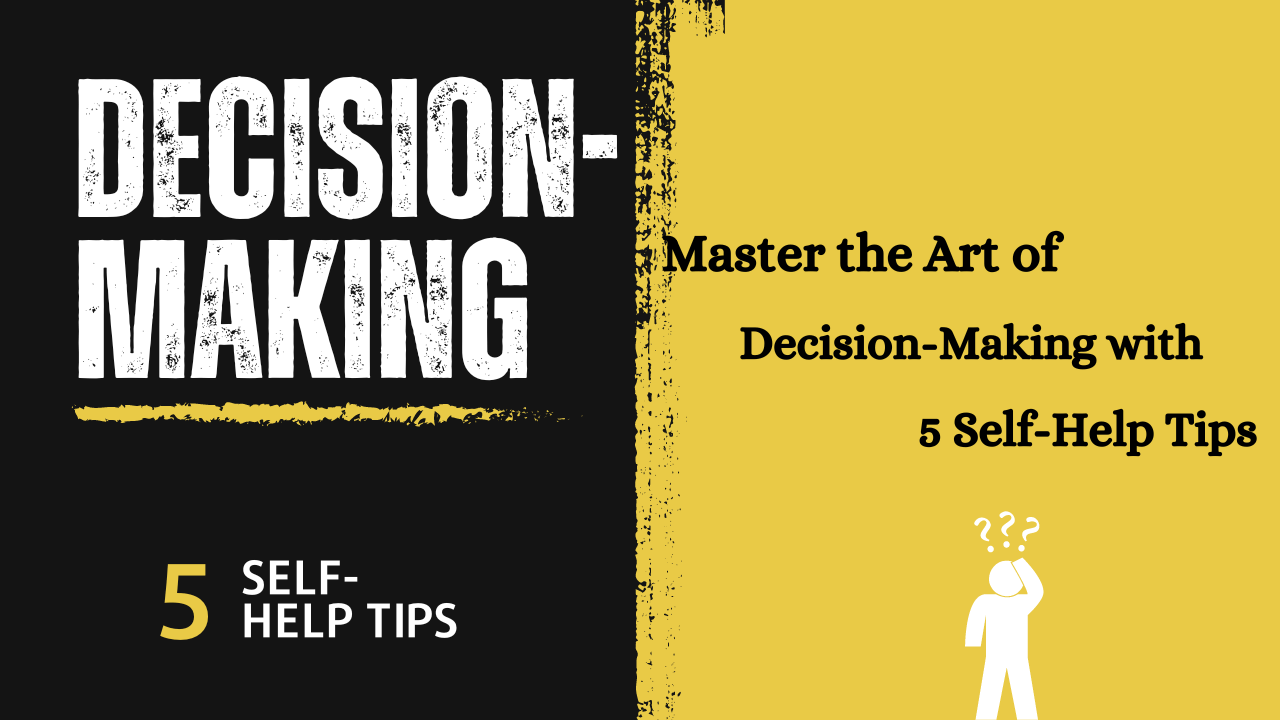Introduction
Making decisions is an integral part of our daily lives. it’s deciding what to eat for lunch or choosing a career path, the ability to make sound decisions ultimately determines our success and happiness. However, decision-making can be daunting task for many individuals, leading to indecisiveness or poor choices. In this article, we will explore five self tips that can assist you in becoming a master of decision-making.
Understanding the Importance of Decision-Making
Before delving into strategies for effective decision-making, it’s important to first recognize the profound impact decisions have on our lives. Every choice we make shapes our future, directly influencing our personal and professional growth. By acknowledging the significance of decision-making, we can motivate ourselves to improve our decision-making skills.
Section 1: Developing Self-Awareness
Self-awareness is the foundation upon which good decision-making is built. Understanding oneself requires introspection and reflection. Take time to identify your values, strengths, weaknesses, and aspirations. By recognizing your own biases and preferences, you can make decisions that align with your true self. Journaling, mindfulness practices, and seeking feedback from trusted individuals can all contribute to developing self-awareness.
Section 2: Enhancing Critical Thinking Skills
Critical thinking involves analyzing information objectively and making informed judgments. To enhance your critical thinking skills, cultivate a curious mindset. Ask probing questions, gather relevant information, and evaluate multiple perspectives. Engage in activities that challenge your intellect, such as puzzles, debates, or reading diverse viewpoints. This will sharpen your analytical abilities and enable you to make well-informed decisions.
Section 3: Managing Emotions and Impulses
Emotions can cloud our judgment and lead to impulsive decision-making. Learning to manage emotions is crucial for making rational choices. Practice emotional intelligence by acknowledging and accepting your feelings without allowing them to dictate your decisions. Cultivate techniques like deep breathing, meditation, or seeking support from loved ones to maintain emotional balance, allowing for more logical decision-making.
Section 4: Seeking Alternative Perspectives
When making important decisions, it’s essential to consider alternative viewpoints. This can help broaden your understanding of a situation and identify potential blind spots. Seek feedback and advice from individuals with diverse backgrounds and experiences. Actively listen to their insights and challenge your own assumptions. Embracing alternative perspectives allows for more comprehensive decision-making.
Section 5: Implementing and Evaluating Decisions
Implementing decisions requires planning and action. Break down your decisions into actionable steps, set deadlines, and establish accountability measures. Regularly evaluate the outcomes of your decisions and make adjustments if necessary. Embrace both success and failure as learning opportunities to refine your decision-making abilities.
Conclusion
Mastering the art of decision-making is a lifelong journey. By developing self-awareness, enhancing critical thinking skills, managing emotions, seeking alternative perspectives, and implementing and evaluating decisions, you can become a master decision-maker. Remember, every decision you make has the power to shape your life, so make each one count. Embrace the process and trust in yourself. With these self-help tips, you’ll be well on your way to becoming a skilled decision-maker in no time.

